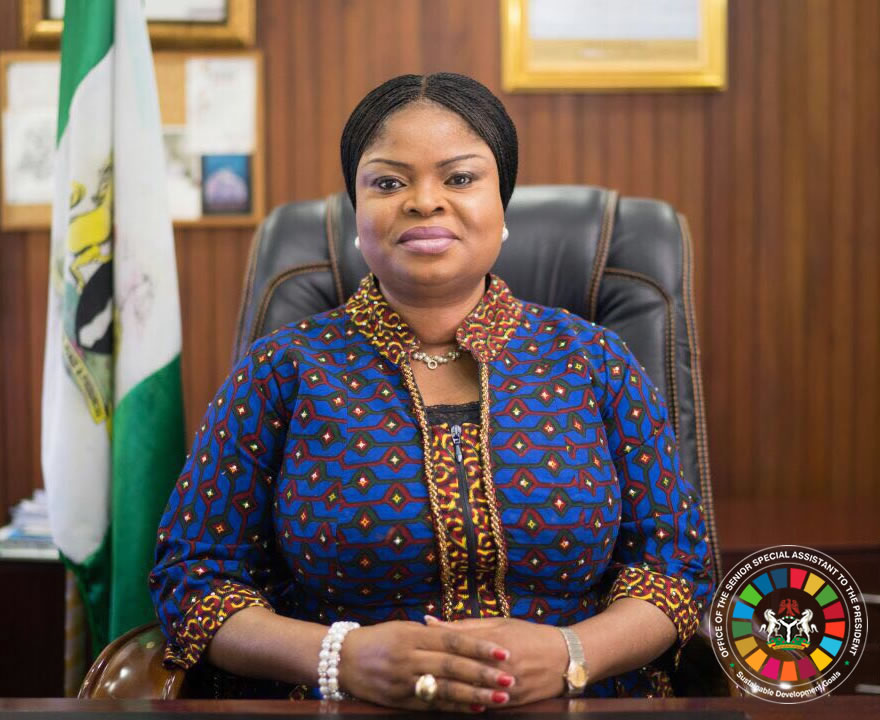News
Presidency wants effective public, private sector collaboration on SDGs implementation

The Office of the Senior Special Assistant (SSA) on Sustainable Development Goals (SDGs) to President Muhammadu Buhari, says there is need for effective collaboration between public and private sectors on implementation of SDGs.
The SSA, Mrs Adejoke Orelope-Adefulire, stated this on Monday in Abuja, at a Stakeholders validation Workshop for High level Policy Makers on iSDG Model Domestication for Use in Nigeria.
The ISDG (Integrated Sustainable Development Goals) Model is a comprehensive simulation tool that generates country-specific development services to show the implications of policy on a country’s progress towards the SDGs.
The event was organised by OSSAP-SDGs, in collaboration with Ministry of Budget and National Planning and UN Development Programme (UNDP).
Orelope-Adefulire said the domestication of iSDGs Model in Nigeria was initiated by the Ministry of Budget and National Planning.
“The private sector, being a key partner in the pursuit of the SDGs, and as the report notes, must also be brought on board and be facilitated to play its role.
“Without the private sector, the promise of the SDGs will remain a mirage.
“However, it is abundantly clear from the report that a ‘business-as-usual’ approach to SDGs financing will not deliver the desired results.
“We must think outside the box in our endeavours to mobilise necessary resources to finance the SDGs agenda.
“But beyond mobilising the necessary resources, we also need to get the financing pathways right; for instance we must ensure that budgetary allocations are released and reach the target beneficiaries in an efficient manner.
“We have only 11 years left to the SDGs timeline. We therefore, do not have the luxury of time.
“It is high time we made tough decisions as a nation, knowing that the choices we make today will have consequences for the present and the future.
“Those choices would determine whether we will achieve the SDGs or not; they would also determine the kind of world we bequeath to the future generation,’’ she said.
She said that effective collaboration between the public and private sector in a transparent manner would go a long way to positively achieve the overall goals of the SDGs.
Also speaking, Mr Mohammed Yahaya, the UNDP Resident Representative in Nigeria, said he had digested the reports on iSDGs.
Yahaya observed that there were four important issues that policy makers needed to take cognisance of in the report.
“The first is the Economic Recovery and Growth Plan (ERGP) that can lead and facilitate the achievement of the SDGs. Review is also important in the process to ascertain areas of unexpected concerns.
“Another issue is climate change which shows potentials for accelerating development; a change towards that direction will be important to a population whose livelihood is threatened by extreme climate related events.
“The third is power and energy; the reports recommended renewable energy; this is a critical area; we cannot talk about SDGs especially in rural areas, without power and energy.
“Lastly, the issue of data; the report found out that data availability and comprehensiveness really impede accurate investment; I am glad that people from the states are here.
“We will help and support in the area of data collection and analysis; Nigeria is not an ordinary country; if we do not achieve it here, then we cannot achieve it in parts of the world,’’ Yahaya said.
Similarly, Ms Pennille Ivouside, Deputy Representative of UNICEF in Nigeria, said the model would enable Nigeria to achieve the SGDs.
“Nigeria is the largest economy in Africa in terms of Gross Domestic Product; over 86.9 million people in the country are poor.
“There is need for deep analysis to check the bottlenecks and other factors that brought about this high rate of poverty.
“Also, more than 10 million children are out of school especially in the northern part of the country.
“Reversing the current trend requires child centred policies; the SDG commitment is to leave no one behind; if Nigeria succeeds, the whole world will succeed.
“We will continue to provide support to SDGs, especially in the area that will positively touch the lives of children,’’ Ivouside said.
It was reported that the event brought together officials from the ministries of Health, Education, Agriculture, Transportation, Finance, Budget and Planning, Power, Works and Housing.
The workshop would end on Wednesday.




 Davido's Net Worth & Lifestyle
Davido's Net Worth & Lifestyle 
